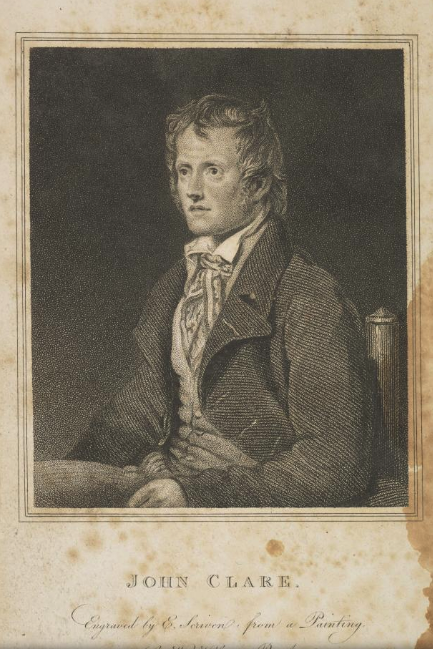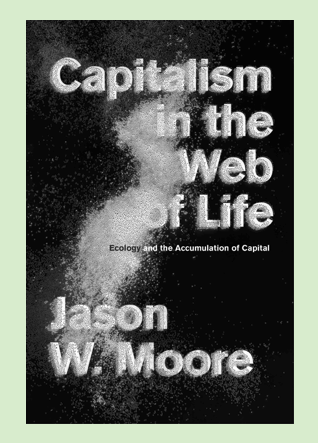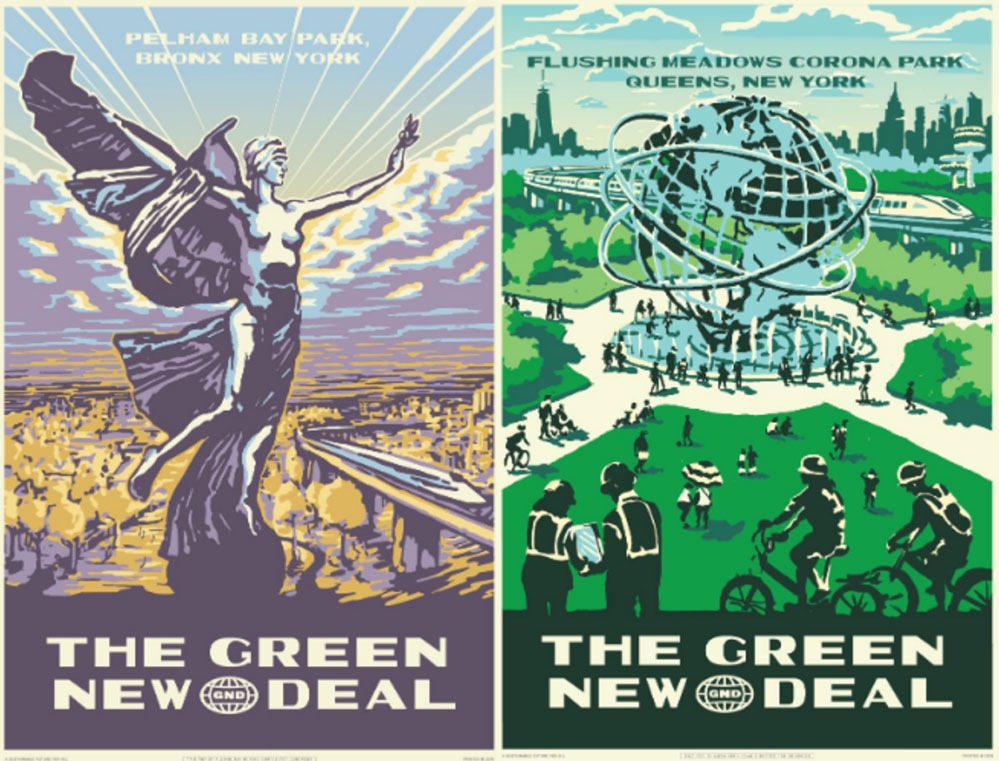
The county where John Clare grew up . . . 'Castle Ashby, Northamptonshire,' undated. George Vincent (1796–1831). [o]
Accursed Wealth! O’er bounding human laws,
Of every evil thou remains’t the cause:
Victims of want, those wretches such as me,
Too truly lay their wretchedness to thee:
Thou art the bar that keeps from being fed,
And thine our loss of labour and of bread.
— John Clare, from 'Accursed Wealth,' from Poems Descriptive of Rural Life and Scenery (1820)
Al Gore missed this memo, written at some time between 1809 and 1813, by the poet John Clare in Northamptonshire, England. However, in his latest op-ed, 'It’s Not too Late – The climate crisis is the battle of our time and we can win', in the New York Times, September 22, 2019, the former Vice President helpfully notes that the fastest-growing occupation in the United States is solar installer and the second fastest-growing is wind turbine service technician. The loss of Clare’s world is un-remediated. The loss of our world, apparently, is salved by the growth of mostly low-wage ‘green-tech’ jobs. Clare, at least, identifies the cause of his loss – Accursed Wealth, or, as we might call it today, capitalism.
Gore, in his best, ever youthful, Gee-Wiz journalese proclaims that, “. . . we are in the early stages of a sustainable revolution that will achieve the magnitude of the Industrial Revolution and the speed of the digital revolution, made possible by new digital tools”. John Clare’s erstwhile bucolic freedom had been proscribed by the British parliament’s Enclosure Acts early in the nineteenth century, under which he lost his rights to the common lands that were seized for the benefit of proto-capitalist land-owners newly cognizant of the wealth generated by grazing sheep. Wool, like cotton, was a fiber fundamental to the modern capitalist ethos whereby the acquisition of wealth transcended the interests of both humanity and the natural world.
It’s all too plausible to conjure a future incarnation of Sarah Palin decrying, “How’s that Green New Dealy thang going for yah?”
There is, it must be admitted, something quite wonderful about wearing a sweater knitted for one by someone near-and-dear, of hand spun wool. Similarly, there is enormous gratification in living in a house that produces all its power needs through panels attached to its roof; but we should not for a moment imagine that wool and photovoltaics, despite their benign potential, are not grist to the capitalist mill. As Clare recognized over two hundred years ago, ‘Accursed Wealth’ had overtrodden human laws. As many understand today, capitalism is the financial system that while it seemingly underpins our entire civilization and is responsible for many of its most alluring aspects, has also fatally wounded what Earth-system scientists understand as a coupled human-natural order.
After two hundred years or more of extravagant exploitation, it is getting increasingly difficult, as Jason W. Moore writes in Capitalism in the Web of Life, 2015, “to get nature, including human nature, to yield its ‘free gifts’ on the cheap” — be they land for grazing sheep or producing the rare earth elements such as indium and tellurium, used in photovoltaics.
Gore is an unrepentant capitalist, eager to put nature to work in new and different ways. An exploitative capitalism is similarly baked into the Green New Deal (Resolution 109 of the 116th Congress). While the Resolution promotes “a new national, social, industrial, and economic mobilization on a scale not seen since World War II and the New Deal era”, and resolves to reduce greenhouse gas emissions through “economic transformation”, it remains premised on the same economic model that sparked the Industrial Revolution. It is this economic model, however dressed in green vestments, that now ravages the planet with for-profit industrial, commercial and institutional development, as well as connective and energy infrastructure – all of which feed on labor and resources brutishly extracted from the earth, albeit with sophisticated electronic assists.

Title: 'John Clare, 1793-1864. Northampton peasant poet.' Etching by Edward Scrivener (1821). [o]
Resolution 109 further notes that climate change, pollution and environmental destruction have exacerbated the ‘systemic injustices’ which afflict ‘frontline and vulnerable communities’. In response, the Green New Deal is charged with creating millions of high-paying jobs, unprecedented levels of prosperity and economic security which will counteract systemic injustice. How will this be achieved? By a combination of federal and state incentives to individuals and businesses resolved to fix the problems within the same old economic parameters. The United States will achieve net zero greenhouse gas emissions, create new ‘green’ jobs, invest in infrastructure and secure clean air and water, promote climate and community resilience and ensure ‘access to nature’ and a sustainable environment within an economic ideology that presumes a supine natural world, that as Moore notes, “has sustained capital accumulation over the past five centuries”.
Given this failure to imagine epochal change, it’s all too plausible to conjure a future incarnation of Sarah Palin decrying, at some point during the program’s projected ten-year mobilization, “How’s that Green New Dealy thang going for yah?”
On reading Al Gore’s hopelessly Pollyannaish and wrong-headed op-ed, I was emboldened to return to his seminal work, Earth in the Balance – Ecology and the Human Spirit, 1992. Maybe ‘return’ is too strong a word. Full disclosure: although the hardback book had sat on my classroom shelves in the room where I taught ‘Green World History’ to 10th graders in the mid ‘90’s, I had never gotten much further than the blurbs on the back cover by the redoubtable, Bill Moyers, M. Scott Peck and Carl Sagan. Having now read it, I realize that although Al Gore may not have invented the internet, he can certainly lay claim to a good portion of the intellectual authorship of the Green New Deal.
Earth in the Balance rose to number four and remained in the top ten of the New York Times Non-Fiction Best Seller List for almost six months after its publication in June 1992. But it was, I suspect, a book much purchased, and little read. Resolution 109 has the virtue of brevity — but in many respects, it ploughs the same ground. Gore’s exposition of the ills that plague the planet is admirable: melting icecaps, methane release in thawing tundra, desertification, deforestation, species extinction, a prediction of on-going increases in the concentration of carbon dioxide in the atmosphere causing “catastrophic changes in global climate patterns”, loss of wetlands, the privatization of seed genetics and the loss of germ plasm resources in wild refuges threatened by development, atmospheric pollution, toxic waste, the plethora of plastics, and methane production from garbage dumps – it is all there. In short, he claims we are “bulldozing the Garden of Eden”. However, as Timothy Morton might suggest, whatever its veracity, it is also horseshoe-in-a-boxing-glove propaganda; and, like most tomes dedicated to the ecological apocalypse, its impact can be relied upon to be in inverse proportion to the gloom of its dystopian vision. Nonetheless, it is an encyclopedic review of the most pressing environmental issues, extant early 1990’s, and is important in its recognition of the “intricate and interdependent web of life” in which both humans and non-human species are entwined.

Nobel Prize winner Al Gore in An Inconvenient Sequel: Truth to Power (2017). [o]
His solution to the planet’s dilemma covered in the last one hundred pages of the book is the development of a ‘Common Purpose’ which makes “the rescue of the environment the central organizing principle for civilization”. He proposes ‘A Global Marshall Plan’ which will contain five strategic goals: stabilizing world population; development of environmentally appropriate technologies; economic ‘rules of the road’ under which the ecological consequences of production are reflected in the market place; international agreements that will ensure the success of the scheme; and the establishment of a cooperative plan for educating the world’s citizens about our global environment.
It was these foundational intellectual presumptions of Modernity, suggests Moore, that allowed for “the exploitation of labor-power and the appropriation of nature.”
In Gore’s vision, the United States will take the lead and primary financial burden in attaining the goals of this ambitious project – with the success of which, if you will allow a moment of extreme understatement, the last twenty-seven years has not dealt kindly. Do we have any reasonable hope that the next decade will prove more receptive of the Green New Deal?
Moore suggests that the theoretical separation of mind and body promoted by Descartes, was shadowed by the similar binary of Society and Nature. It was these foundational intellectual presumptions of Modernity, he suggests, that allowed for “the exploitation of labor-power and the appropriation of nature”, which led to the half-a-millennium drive towards capitalist commodification, now manifested in a planetary crisis. The Green New Deal, like its antecedent, Gore’s ‘Global Marshall Plan’, will create barely a bump along this road to perdition.

“If nothing else, the climate crisis demonstrates that the history of capitalism is a thoroughly ‘environmental’ one. This energizing book proposes an inventive framework for making sense of that past, and for orienting ourselves as we get down to the business of changing the future.” – Naomi Klein
Considering global warming, Moore writes, “…the appropriation of Cheap Nature has not only compelled capital to seek out new sources of cheap labor-power, food energy, and raw materials, but to ‘enclose’ the atmosphere as a gigantic dumping ground for greenhouse gases”. This is perhaps, to turn on a word, the new ‘Enclosure Movement’, accidentally engineered as a convenience to capitalism and as dramatic in consequence to our daily freedoms as the eponymous nineteenth century movement that foreclosed the options of young John Clare, the poet, along with millions of others throughout the British Isles. In its new guise, it is foreclosing the future of billions.
It was the ideas of Descartes and Bacon that created a space, in the early seventeenth century, for a scientifically founded modernity. The climate emergency - the planetary crisis - now demands, not a Green New Deal which recycles Gore’s still-born ‘Global Marshall Plan’, but the attempted closure of modernity through a complementary revolution in thought – an intellectual foment capable of turning back the rapacious appetites of capitalism. ≈ç

A tweet by Alexandria Ocasio-Cortez, Aug 30, 2019: "Surprise!✨I am thrilled to announce the launch of our #GreenNewDeal art series with custom Bronx & Queens GND posters."
ENTER THE CAPITALOCENE: AN INTERVIEW WITH JASON W. MOORE by Matt Simon
SIMON: What is the 'Capitalocene' you’re proposing?
MOORE: Capitalocene is a kind of critical provocation to this sensibility of the Anthropocene, which is: We have met the enemy and he is us. So the idea that we're all going to cover our footprints, we're going to be more sustainable consumers, we're going to pay attention to population, are really consequences of a highly unequal system of power and wealth.
SIMON: There’s an assignment of blame here, which corporations love to do in particular with their workers — if you don't meet your goals as a company, it's not the people in the C-suites that are getting laid off, it's the laborers. The climate crisis strikes me as an extension of that, that 100 corporations are responsible for 70 percent of emissions, but they're the ones who will say, "Well, you as consumers could do a whole lot yourselves."
MOORE: That's right, and there's also a shift from looking at production to looking at consumption. Most carbon dioxide doesn’t come from people flying around the world, although that's a major contributor to it. It comes from production. For younger people there seems to be a kind of cognitive dissonance between yes, we are responsible, and at the same time we know that we are not responsible.
SIMON: Is capitalism compatible at all with any movement on climate change?
MOORE: That's the classic eco-socialist question. It's very clear that the problem is not technological there are the technological means to decarbonize very rapidly. Still, if you solarize and go with wind, you have to store all the energy, you have to rebuild the electrical grids. It's usually costly, and finance capital is really wary of those long-term projects.
What the venture capitalists want is a very narrow version of a technological application that can be used and put on the market right away. Out there in the culture, we think of capitalism as entrepreneurial and risk-taking and innovative, and that sometimes is the case but only within a very, very narrow frame. And we're talking about huge existential transformations of the earth.
SIMON: Is there historical precedent here? Have, for instance, natural climate fluctuations in the past threatened capitalism?
MOORE: Climate changes over the past 2,000 years have been extraordinarily destabilizing to ruling classes. This was the case for the Roman Empire in the West. So drought pushes the Huns, which pushes the Goths, they go into Western Europe. But more fundamentally, the changing climate after the year 400 creates all sorts of economic and political tensions, and in Western Europe the Roman Empire collapses. We now understand that wasn't a terrible thing, that in fact there was more equality, a lower birth rate. There were peasants reorganizing agriculture so that they depended on many different sources of food and had many different livelihood strategies, instead of just growing wheat for the Roman overlords.
This interview was first published in Wired, October 28, 2019.

JOHN DAVIS is a California-based architect "living on too many acres of chaparral in Upper Ojai." He writes a blog, Urban Wildland, where he says his writing "is a way of resolving the values it represents; a single voice, yes, but one that is, I hope, always evolving."

Add new comment